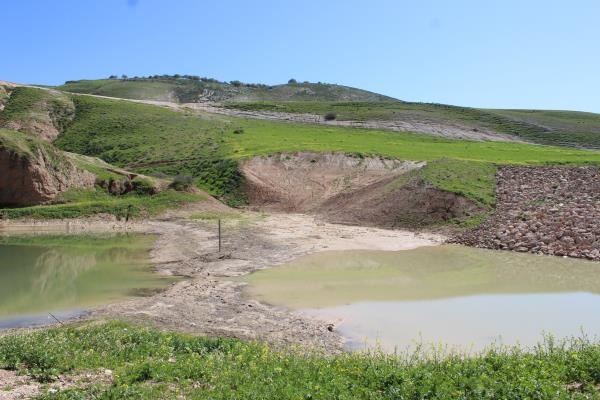
19 March 2021, Rome - Two FAO-designed projects, one focusing on agroforestry in sub-Saharan Africa and the other on water management in the Near East, have received $80 million, paving the way to improve the livelihoods of more than 250 000 smallholders.
The Board of the Green Climate Fund (GCF) approved the funds for initiatives in the Republic of Congo and the Hashemite Kingdom of Jordan. Both are the first GCF-funded projects in those countries, underscoring FAO's focus on expanding the use of global tools to advance climate action in food and agriculture. FAO's GCF portfolio has now risen to $878 million, supporting 15 projects.
"We appreciate the strong vote of confidence in FAO's efforts for more efficient, inclusive, resilient and sustainable agri-food systems, and we welcome the GCF's increasingly prominent role in that respect," said FAO Director-General QU Dongyu.
The PREFOREST initiative in Congo drew in, as co-financier, the Central African Forest Initiative (CAFI), a collaboration gathering six regional countries and a host of donors with expertise in forestry topics. The International Fund for Agricultural Development (IFAD) is also co-financing this project.
The two new projects contribute to FAO's goal of scaling up and broadening support for climate-related investments in agriculture that offer socio-economic and environmental benefits and help smallholders in vulnerable countries progress on low-emission and resilient development.
Farming with trees in Congo
The PREFOREST project in the Republic of Congo will mitigate 16.7 million tons of greenhouse gas emissions over 20 years by sustainably shifting local farmers away from slash-and-burn practices in agriculture and fuelwood procurement towards agroforestry approaches that combine management of trees with that of crops and livestock, resulting in better and more sustainable livelihoods.
Deforestation and forest degradation currently generates around 81 percent of Congo's GHG emissions, reflecting low agricultural productivity and highlighting a significant opportunity for mitigation.
While the project is directly aimed at more than 40 000 smallholder farmers in critical areas of the country, it is ultimately expected to benefit more than one of every six people in the country as they adopt better practices and participate in broader entrepreneurial opportunities.
PREFOREST, the first GCF-funded forestry project in the Congo Basin, is a key part of the Government's plans to halve its emissions by 2035, says Rosalie Matondo, Minister of Forest Economy.
The GCF grant amounts to $28.9 million and will be bolstered by $9 million in co-financing from the Government, $7 million from CAFI and $1.6 million from IFAD, as well as private sector investments it catalyzes. A central part of the project entails strengthening local communities' access to land and tenure rights, which can foster development of more bankable local business models and sustainable use of natural resources.
Water for livelihoods in Jordan
Jordan's first GCF-funded project, to be implemented by FAO and the UN Development Programme (UNDP), targets around 210 000 people - almost half of whom are women - in areas of the Dead Sea basin that are particularly vulnerable to climate-induced water stress.
It focuses on key investments in water-related infrastructure at the household and regional level to support the adaptive capacity of communities and institutions and increasing the efficiency of water management systems. It promotes innovative solutions including harvesting rooftop rainwater, introducing innovative irrigation and cropping technologies, and enhancing the use of reclaimed water.
The project will also provide tailored information to rural women through extension services. Investing in improved water access will lift agricultural productivity and promote more sustainable farming practices, a double win for smallholder incomes and the environment.
The project contributes to Jordan's capacity to adapt to the impacts of climate change while also supporting the long-term sustainable development targets of the agricultural sector, according to Nabil Masarweh Jordan's Minister of Environment.
The GCF grant amounts to $25 million and is flanked by $1 million each from FAO and UNDP as well as $6.1 million from the Government.